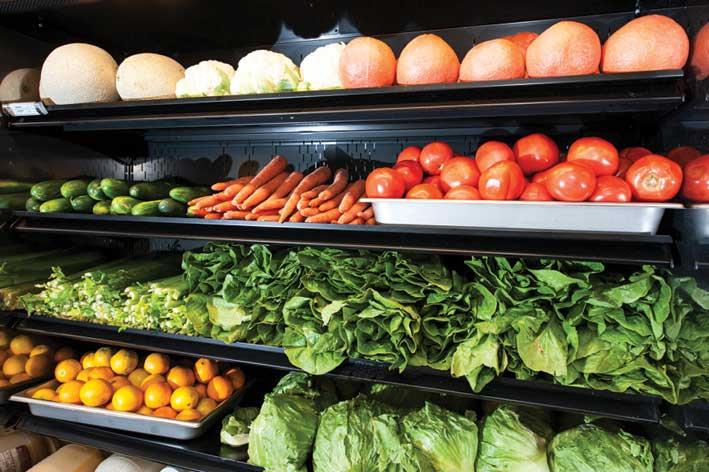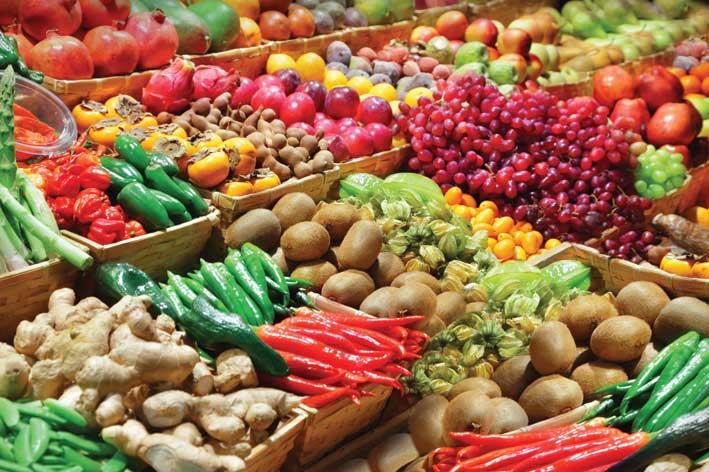Your body is only as good as what it is fed. Eating gives your body the materials it needs to build healthy tissue. It also tells your body what it should do. Your metabolism keeps your body's engine going. If you don't eat the right food, or if you eat too much or too little, your system gets the wrong message and, unless it gets the right materials to work with, you risk developing weight problems and conditions or diseases like diabetes and heart disease.

The processes that keep your body in good health - breaking down food, clearing out waste products, building new tissue, repairing damage, and so on - depend on a steady supply of the right sort of nutrients. Without those nutrients, or if you do not get enough of the right kind, those functions are compromised. In extreme cases, such as starvation, the metabolic processes slow down or stop altogether.
A lot of popular literature focuses on "bad" foods, i.e. the sort that should be excluded. Butter, margarine, red meat, salt, sugar, have all been tagged as being bad for you. Thinking only about what you shouldn't eat isn't very helpful. Cutting some things out of your diet is often necessary for health reasons. Salt, for instance, aggravates problems with high blood pressure. But thinking only about what to cut out, rather than what to eat instead, is frustrating, limiting, and often self-defeating. Nothing induces stronger craving for something than thinking you shouldn't have it.

BAD DIET HABITS
Eating for convenience
If you're rushing around all day without the time or mind to think about food until you're hungry, you're more likely to rely on convenience foods. Fast food - burgers, chips, hot dogs, pizza, pastizzi - are conveniently quick, hot, and edible on the go. But their nutrition content is questionable at best. At home, if you're tired, have a badly stocked fridge and larder, and no inclination to spend time in the kitchen, it's much easier to rip open a packet and add hot water, or shove a ready meal into the microwave. If that's a daily routine, you're not doing your body any favours. Save time by making up double servings of meals and freezing one so whenever you're rushed or too exhausted to cook, you can still get a home-made meal.
Eating solely for pleasure
Food is one of life's greatest pleasures, but it doesn't work for you if your pleasure is too much of one thing, not enough of another, and erratic eating times and portion sizes. Yes, cold, dull weather makes you crave carb-laden, food. When you're hungry, nothing seems more satisfying than sweet or fatty food. When the weather's warm, eating anything more than a light salad can seem too much. If your eating pattern is driven only by what you feel like, when you feel like it, you probably are not getting all the nutrients you need. Kick off your day with a reasonable breakfast. It'll set the tone for the rest of the day, reducing the mid-morning cravings that have you reaching for a chocolate bar or donut.
Relying on processed foods
Take a look around your usual supermarket and then look at the amount of fresh food in your shopping trolley. Chances you've picked out convenience foods that taste good and are dressed up in attractive packaging, but are nutritional nightmares. Processed foods are lower on natural nutrients than fresh food. If most of your ingredients or meals come out of a packet or can, you're asking for trouble.
Processed foods have additives
Take a look at the labels on those packets. You'll probably find they are full of additives, flavour enhancers, artificial colours, sweeteners, salt, or chemically-altered fats. All those things mess up your system. Stock up on fresh, unprocessed food instead. It means a bit more work, but better health in the long run.
Think nutrition, not just natural
Raw vegetables have a higher nutrition content than processed vegetables, right? Not quite. Mass produced food is naturally nutrition-depleted compared to organically grown fruit, vegetables and meat. Super-sized produce of uniform colour and size looks very attractive but its nutrition content may not be as good as the ugly, irregularly shaped produce grown without pesticides and other chemicals.

NUTRITIOUS FOOD
Eating well does not have to be boring. As a rule of thumb, everything in moderation and nothing in excess works well for most people. If you have a chronic health condition, are pregnant, overweight or underweight, ask for professional advice on what to eat.
Meat has a high concentration of nutrients, including protein and iron. However, not all meats are equal in terms of health-value and nutrition. Choose lean, organic meat, rather than fatty cuts and keep your intake of red meat to no more than 1-2 times a week. Chicken breast has lots of protein and little fat. Lean red meat is better than a thick, fatty ribeye steak and can be just as tasty.
Fresh fish provides low-cholesterol, low-fat protein, lots of minerals, and great taste. It is one of the most versatile and nutrient-rich convenience foods. Have your fishmonger gut and descale a fish, put it in the oven for 20 minutes or so and serve with a fresh salad. Oily fish provide essential omega-3 and omega-6 fatty acids. A portion of Atlantic salmon can give you most of your daily vitamin B12 and B6.
Fruit and vegetables pack a nutrient punch, with lots of taste and fibre and zero preparation time beyond washing and peeling. It's also portable, and perfect for snacks between meals. Apples are high in fibre and containt lots of antioxidants. Bananas are one of the best sources of potassium and have lots of vitamin B6. Oranges are fibre-rich, full of vitamin C and antioxidants. Berries are a good source of vitamins and antioxidants. Strawberries are low-carb, but loaded with fibre, vitamin C and minerals. Blueberries are among the tastiest fruit and packed with antioxidants. Pineapple gives you vitamins A, B6, and C, and a good dose of calcium and other minerals. Buy fresh and seasonal organic fruit for the best nutritious snack.
Nuts and seeds are loaded with nutrients including protein, manganese, and vitamin E, which is great for skin health. Many are high in fat and calories but their satisfying, crunchy taste and texture can add a nutrient boost even in small amounts. Almonds are a good source of fibre, vitamin E, antioxidants and magnesium.Walnuts give you calcium, iron, vitamin B6 and magnesium. Chia seeds are nutrient dense. Just a couple of teaspoonfuls can give you a fair proportion of your daily nutrient needs including fibre, calcium, iron, and magnesium.›‹